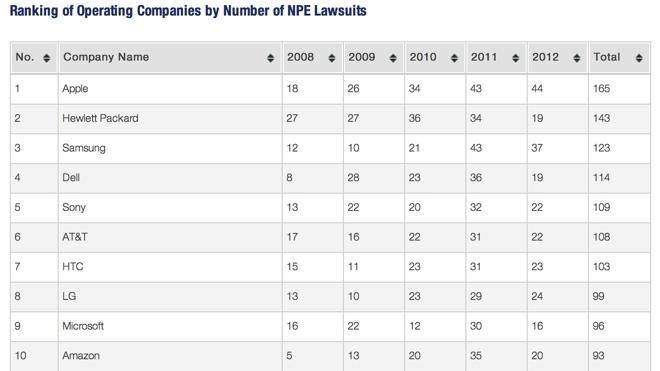So-called "patent trolls" can earn millions of dollars by being a costly thorn in the side of companies like Apple. Now, the governments of countries including South Korea and France have shown interest in getting into that business to protect domestic firms, and also potentially make money.
South Korea's Intellectual Discovery and French firm France Brevets are companies similar to U.S. companies that acquire patents and secure licensing deals for those inventions without actually selling any products. But a key difference revealed by Reuters on Wednesday is the new companies were launched by their respective country's own governments.
Neither company has yet to file any lawsuits, but there are also signs that the governments of China and Japan are also interested in getting in the mix. The Innovation Network Corp of Japan launched as a public-private venture in 2010, while China plans to set up about 20 "investment service platforms," according to the country's intellectual property office.
While China and Japan wouldn't comment on their plans, South Korea portrayed its venture as in an "incubating stage." The government-backed company has purchased more than 200 U.S. patents, and has said it plans to use those patents to protect other South Korean companies that might be targeted by a lawsuit.
Such intellectual property firms are derided by some as "patent trolls," because they siphon money from large corporations like Apple that sell products and services. An intellectual property firm can accuse such companies of violating the patents they own, and can secure licensing deals or even file patent infringement lawsuits to obtain cash.
Apple is routinely hit with "patent troll" lawsuits — so much so that one report from last year found that the iPhone maker faces more patent lawsuits from non-practicing entities than any other technology company in the world.
The group PatentFreedom has continued to keep a running tally, and Apple remains the most-targeted, facing 165 patent lawsuits from non-practicing entities since 2008. In 2012 alone, Apple was hit with 44 additional lawsuits, also the most of any company.
Some believe those non-practicing entities are taking advantage of intellectual property laws in the U.S. for financial gain. That's prompted some, such as Rep. Peter DeFazio, D-Ore., to fight back.
DeFazio has co-sponsored the SHIELD act, which he hopes will discourage patent infringement lawsuits by non-practicing entities by requiring them to pay their opponents' legal fees if they lose.
 Neil Hughes
Neil Hughes







-m.jpg)






 Charles Martin
Charles Martin

 Malcolm Owen
Malcolm Owen
 William Gallagher
William Gallagher

 Christine McKee
Christine McKee
 Wesley Hilliard
Wesley Hilliard









43 Comments
Is this "the other shoe dropping", "blowback", or something else? I've long worried that; kudzu would replace all plants in the South East, a Bush family member would be elected President again, and that other countries would adopt the copyright and patent model of the US. I mean, it probably seemed like a good idea at the time; create nothing and patent everything and then make royalties more valuable and protected, unlike jobs and wages and edible paint on children's toys. Oh yeah, this is the "Chickens coming home to roost." We should enjoy our Just Desserts and eat our crow -- the Dutch Boy can't plug this leak with a fat finger and the cat is out of the bag of donuts.
I understand the need for the original owner of a patent to protect their ideas even if they don't have a working product but I draw the line when they "sell" their patent to a troll who's only job is to try and attempt to get whatever money they can. These patent trolls are like ambulance chasing lawyers who could care less about the law and only about potential income for themselves. Add to this the ridiculous nature of patent law around the world and you have a totally corrupt and inoperable mechanism for trying to protect the real originators of an idea. For those truly unique and revolutionary ideas I can see protecting them with a patent but for the other 90%, cancel them all and let the market decide. Apple is trying to protect both its patents and its use of ideas and processes supposedly patented by others. As this article states, others are taking the quick road to making money by not developing anything, instead just suing to get money. Get a life and a real job trolls!
The US government probably wont be alarmed until North Korea and Iran get in the game.
I'm pretty sure I mentioned this once here a few weeks back, but China already pays subsidies to Chinese firms for successful US and other foreign patents applications, both utility and design. In fact a Chinese applicant can receive 10 times as much subsidy money from the Chinese government for being awarded a US patent than a domestic one. http://chinaipr.com/2012/06/12/china-to-provide-financial-incentives-for-filing-patent-applications-abroad/
"earn"?